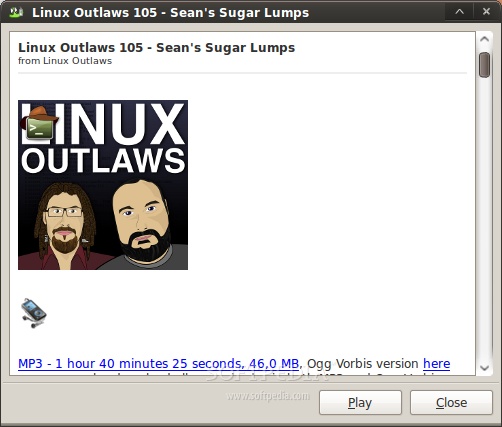

- #GPODDER REVIEWS INSTALL#
- #GPODDER REVIEWS DOWNLOAD#
- #GPODDER REVIEWS WINDOWS#
To change gPodder’s configuration, open the Preferences dialog box by choosing Podcasts > Preferences from the menu bar, clicking the Preferences button on the toolbar, or typing Ctrl-P. GPodder has numerous configuration options to set its behaviour: how it plays podcasts, handles downloads, and many others.
#GPODDER REVIEWS DOWNLOAD#
This will download feedparser and mygpoclient and place them into src/ - bin/gpodder and bin/gpo will be able to pick these modules up from there, so all you really need is Python >= 3.5 on your system. If you have checked out the source, but are missing dependencies, you can make the source checkout a self-contained gPodder setup with all dependencies by running:

GPodder is designed to also run directly from a source checkout (the maintainer uses it like that all the time):
#GPODDER REVIEWS INSTALL#
In general, if you get gPodder via Git or the source tarball, simply run it directly from the source checkout and don’t try to install it system-wide (use your distro’s packages for system-wide installation). If you want to try the latest version, see the instructions at: Run from Git
Changing the gPodder Home Folder on macOS. 
#GPODDER REVIEWS WINDOWS#
Changing the gPodder Home Folder on Windows. Changing the downloads folder location and the gPodder Home folder. gPodder Home Folder and Download location. Time stretching (making playback slower or faster). Keeping downloaded episodes (Archiving). Removing episodes when deleted from gPodder. Appending episodes to the current playlist. Importing subscriptions from an OPML file. When information applies to older versions of gPodder, this will (should) be explicitly stated. Things written here might not exist or work as described in older versions of gPodder. If you use Arch (or an Arch-based distro), I would recommend doing the same.In general, the assumption is that you are running the latest version of gPodder 3. Like I said earlier, the Arch User Repository version of CPod is old. All you need to do is use the following command: sudo snap install cpod On GitHub, you can download an AppImage or Deb file for Linux, a. As each episode played, it displayed a visualization of the sound wave, along with the episode summary. You can also reorder them by dragging and dropping. Once they are in the queue, you can either stream them or download them. I quickly discovered that the easiest way to play a bunch of podcast episodes was to add them to the queue. I clicked on the podcast, typed “ZFS” in the search box and found it. for example, I was recently looking for an episode of Late Night Linux where they were talking about ZFS. It was also very easy to find a particular episode of a podcast. I was able to add the ones that were not on the iTunes’ list by pasting in the URL for the RSS feed. Right out of the gate, I was able to find most of my favorite podcasts. For this article, I will focus on 1.27.0, since that is the most current and has the most features. Because of the version difference between ArchLabs and Windows, I had to different experiences. The most recent version of CPod is 1.27.0. However, they are both out of date, one is version 1.14.0 and the other was 1.22.6. There are two versions of CPod in the Arch User Repository. I ended up installing CPod on two systems: ArchLabs and Windows.






 0 kommentar(er)
0 kommentar(er)
